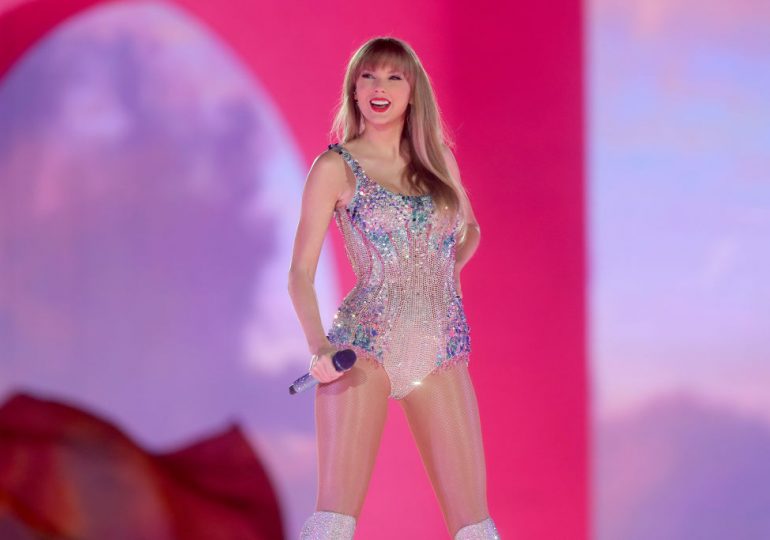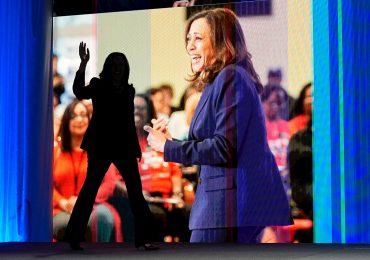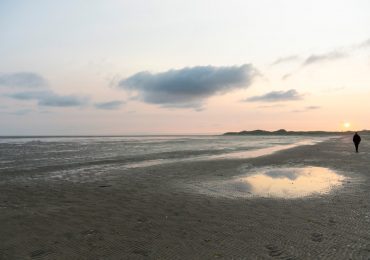A group of US consumers has surprised companies and economists by splurging on Taylor Swift concerts, trips to Paris and dining out — even as their savings decline.
Call them the YOLO consumers.
It’s a cohort that’s never let go of the “you only live once” ethos that emerged during the existential upheaval of Covid-19. They’ve continued spending on experiences for longer than most expected — and they’re a key part of the surprisingly resilient US economy.
[time-brightcove not-tgx=”true”]
“We appreciate there are heightened concerns around the state of the consumer as of late,” Josh Weinstein, chief executive officer of cruise operator Carnival Corp., told analysts at the end of September. But consumers are still booking more cruises than ever before, he said, and they’re “continuing to prioritize spending on experiences over material goods.”
Take Carli Simpson. The 25-year-old executive assistant and her boyfriend are forgoing physical gifts for the first time this holiday in favor of trips to Colorado in January and Florida in March. The travel allows them to enjoy more time together. “The pandemic, too, kept us from going anywhere,” Simpson said in New York.
YOLO spending has helped to power the expansion of US gross domestic product, which grew at the fastest pace in nearly two years in the third quarter. The data was at odds with warnings of a looming recession.
The YOLO phenomenon doesn’t preclude a slowdown in the coming quarters, or even a recession. There are signs that even wealthier shoppers are pulling back. Savings have dwindled from pandemic highs, and while inflation’s trajectory has moderated, its steady rise has outpaced wage increases. Higher interest rates are an additional hurdle.
Add it all up, and the outlook is challenging for many companies, especially those selling merchandise such as clothing and appliances. But with unemployment remaining near record lows, consumer spending has defied expectations — and experience-focused companies are at an advantage.
Live Nation Entertainment Inc. is one example. The owner of Ticketmaster is already seeing record levels of demand for concerts next year, even after a banner summer headlined by music icons Swift and Beyoncé. Executives mentioned an upcoming tour by Puerto Rican rapper Bad Bunny as part of a “strong concert calendar” for 2024.
Read More: The Staggering Economic Impact of Taylor Swift’s Eras Tour
In other industries, Delta Air Lines Inc., hotel operator Marriott International Inc. and luggage maker Samsonite International SA have all seen revenue rise for 10 consecutive quarters, although the pace has moderated.
The portion of Americans who say they plan to travel to a foreign country during the next six months is at the highest on record, according to a closely-watched survey of consumer confidence published in late October. That’s despite a drop in consumer confidence to a five-month low in the same survey.
After all — YOLO.
“When things are good, you take advantage of it,” said Kam Sidhu, the 46-year-old owner of a Montessori school and some fast-food restaurants, who traveled to New York from Montgomery, Alabama, with her 15-year-old daughter and a friend. They were planning to see the Macy’s Thanksgiving Day parade and some Broadway shows. She’s also planning a cruise to celebrate the new year with her family.
While she’s a bit cautious about the economy with the war in the Middle East and the upcoming US presidential election, she said the pandemic made her realize, “Wow, we really need to be out there with each other. Just human experience — together.”
In response to heightened demand, United Airlines Holdings Inc. is expanding flights to some international destinations for the winter. Along with American Airlines Group Inc. and Delta, it’s adding more flights and new cities next summer — mainly to tourism-focused areas across Europe. In the domestic market, by contrast, demand has waned and discounting has increased.
Samsonite CEO Kyle Francis Gendreau recently told analysts he sees “tremendous momentum as we think about the end of ’23 into ’24,” particularly in North America and Europe. US economic data show luggage sales rose 22% in the third quarter from a year earlier.
Dining is also part of the trend. “The younger you go,” Starbucks Corp. Chief Marketing Officer Brady Brewer told investors recently, “the more likely they are to splurge in restaurants and bars as the one place where they want to spend.”
Many retailers, meanwhile, are reporting sluggish spending on appliances, electronics and apparel. Target Corp. CEO Brian Cornell recently told analysts there have been seven consecutive quarters where discretionary goods have declined both in dollar terms and by volume across the industry.
Macy’s Inc. CEO Jeff Gennette said last week that consumers “are under pressure” and “in some cases, shifting toward experiences and away from our discretionary categories.” His company’s comparable sales fell 7% year-over-year in the third quarter.
Discounts are expected to be among the highest for apparel on Black Friday, according to Salesforce Inc., a software company that tracks online sales. It expects US online sales during November and December to grow around 1% year-over-year, the slowest pace in five years.
Read More: Why Black Friday Deals Are Starting Earlier Than Ever
Companies are trying to adjust to consumers’ preference for experiences over physical goods. Signet Jewelers Ltd., the owner of Kay Jewelers and Zales, is putting a twist on jewelry purchases by offering more customization, with the aim of boosting declining sales. Shoppers can use augmented reality in stores and online to choose a specific mounting or gemstone for an engagement ring — or work with a jeweler to design a piece from scratch.
“We saw that couples, as they were shopping for an engagement ring together, wanted to have a more interactive experience,” said Jamie Singleton, Signet’s chief consumer officer.
Leave a comment
















